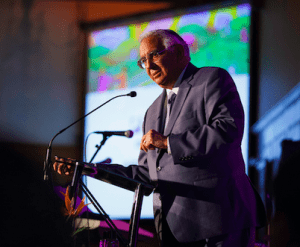 The mission of God focuses on Jesus Christ, God’s Son and now Lord over death as a result of the resurrection and ascension. Attempts to snuff out this fledgling movement fail, and this has been seen both in attempts to imprison and in attempts to silence. But within the new work of God through God’s Spirit in the Church are seeds of discontent — we saw them in chp 5 with Ananias and Sapphira and we will see the same seeds at work in discontent and distraction. So, Acts 6 gives us an insider’s view of issues at work in the church, the place where God is at work in Jersualem.
The mission of God focuses on Jesus Christ, God’s Son and now Lord over death as a result of the resurrection and ascension. Attempts to snuff out this fledgling movement fail, and this has been seen both in attempts to imprison and in attempts to silence. But within the new work of God through God’s Spirit in the Church are seeds of discontent — we saw them in chp 5 with Ananias and Sapphira and we will see the same seeds at work in discontent and distraction. So, Acts 6 gives us an insider’s view of issues at work in the church, the place where God is at work in Jersualem.
6:1 Now in those days, when the disciples were growing in number, a complaint arose on the part of the Greek-speaking Jews against the native Hebraic Jews, because their widows were being overlooked in the daily distribution of food. 6:2 So the twelve called the whole group of the disciples together and said, “It is not right for us to neglect the word of God to wait on tables. 6:3 But carefully select from among you, brothers, seven men who are well-attested, full of the Spirit and of wisdom, whom we may put in charge of this necessary task. 6:4 But we will devote ourselves to prayer and to the ministry of the word.” 6:5 The proposal pleased the entire group, so they chose Stephen, a man full of faith and of the Holy Spirit, with Philip, Prochorus, Nicanor, Timon, Parmenas, and Nicolas, a Gentile convert to Judaism from Antioch. 6:6 They stood these men before the apostles, who prayed and placed their hands on them. 6:7 The word of God continued to spread, the number of disciples in Jerusalem increased greatly, and a large group of priests became obedient to the faith.















